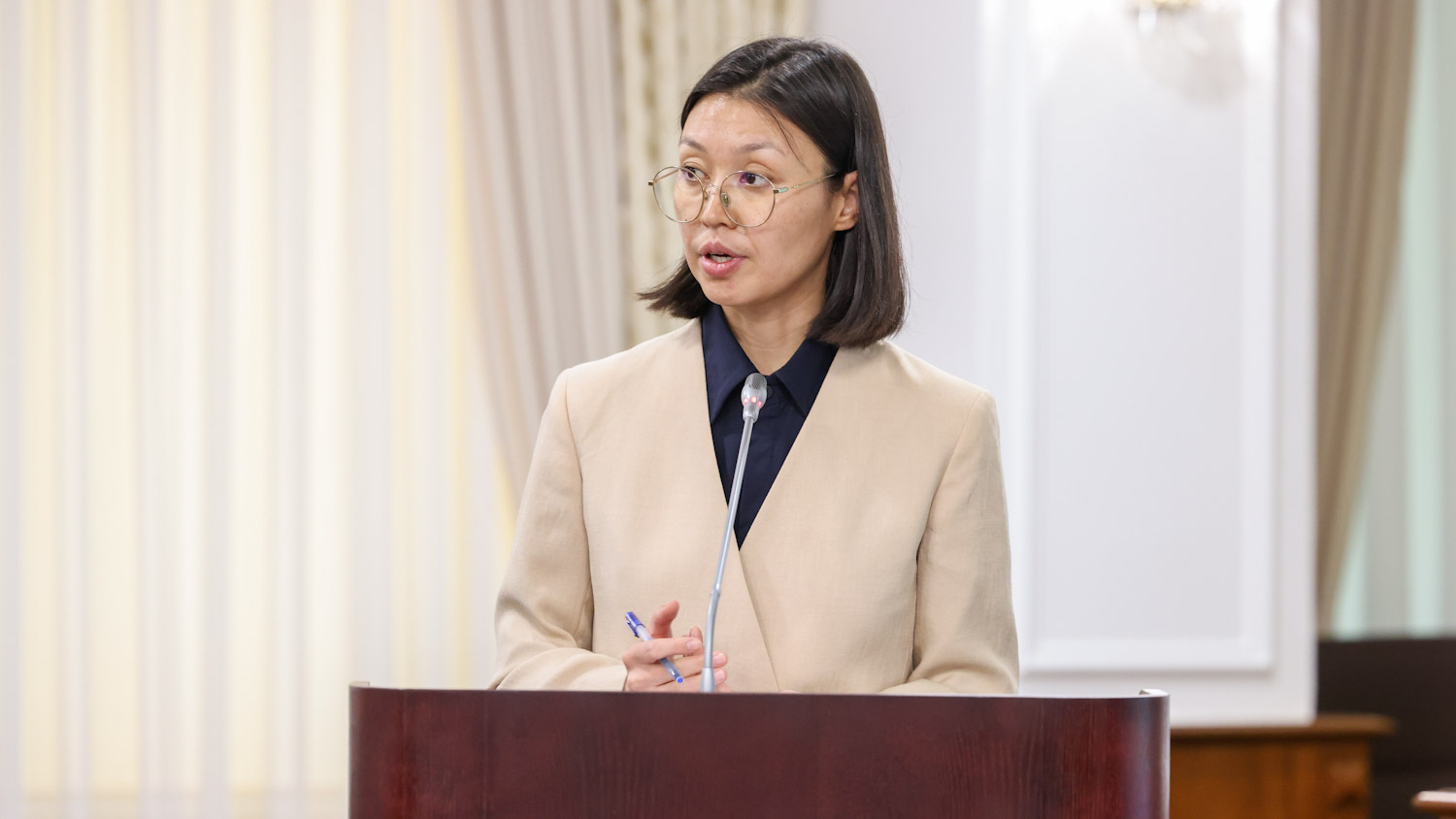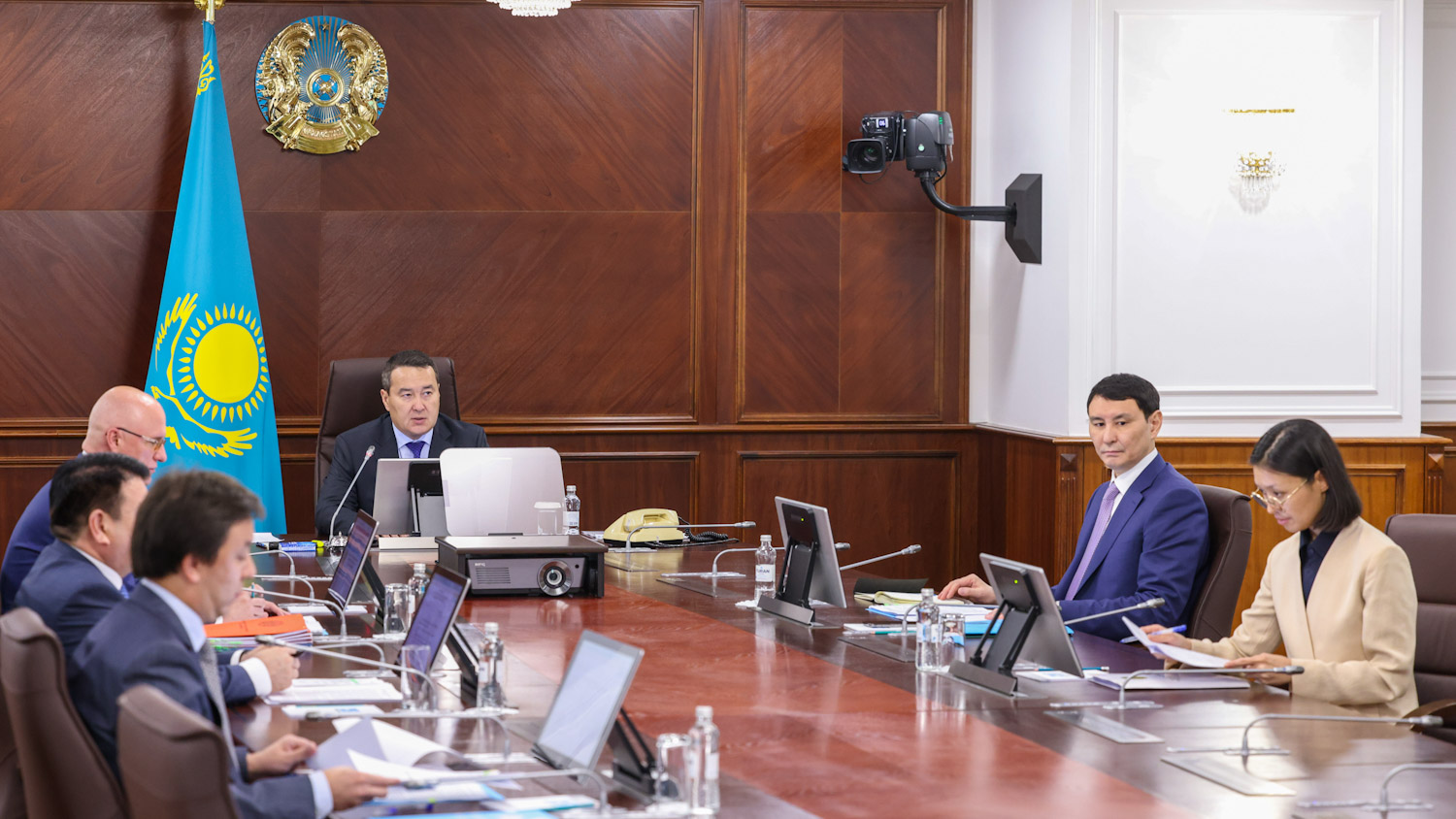ASTANA – Kazakhstan has cut the economy’s energy intensity by 36.7% to a 2008 level over a decade, announced Minister of Ecology and Natural Resources Zulfiya Suleimenova at a July 17 meeting of the Council on the transition towards a green economy chaired by Prime Minister Alikhan Smailov, reported the Prime Minister’s press service.

Zulfiya Suleimenova at a July 17 meeting of the Council on the transition towards green economy. Photo credit: primeminister.kz.
The Concept of the Transition Towards a Green Economy allowed the share of renewable energy sources to reach 4.5%, the area of forests to extend to 5%, and the specially protected natural territories to expand to more than 10% of Kazakhstan’s territory.
The minister unveiled plans to bring recycling and disposal of household waste to 40% by 2030 and to 60% by 2050 within the concept upgraded with the adoption of the Carbon Neutrality Strategy until 2060.
“Waste collection and disposal services should cover 100% of the population by 2040 through the organization of a centralized system in rural areas,” Suleimenova pointed out.

Alikhan Smailov chairs the meeting on improving the environmental situation in the regions of Kazakhstan and the development of renewables. Photo credit: primeminister.kz.
Kazakhstan is set to bring the share of recycling and disposal of industrial waste to 60% by 2050 by introducing the best available technologies at enterprises and reclaiming and building new municipal solid waste landfills.
The concept envisages measures to reduce air pollutant emissions, in particular, by modernizing combined heat and power stations and switching to gas, protecting natural areas, rare species of plants and animals, and expanding the forest area.
Considering the green economy as one of the essential tools for Kazakhstan’s sustainable progress, the Prime Minister said the concept objectives will require a significant change in the development trajectory of the country’s economy.
“This will improve living standards of people, the air, waste management, use of water and land resources,” he noted.
Smailov instructed the ministry to accelerate updating the concept and submit the draft to the government by Dec. 1.
Touching on renewable energy sources, the participants also revealed that 132 facilities with a total capacity of 2,525 megawatts have operated in Kazakhstan. With new facilities launching ahead of schedule, the country plans to introduce another 6,720 megawatts of renewable generation by 2027.

